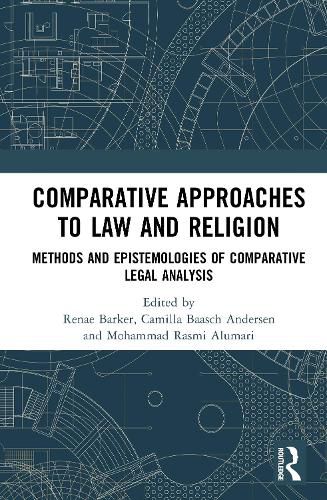Readings Newsletter
Become a Readings Member to make your shopping experience even easier.
Sign in or sign up for free!
You’re not far away from qualifying for FREE standard shipping within Australia
You’ve qualified for FREE standard shipping within Australia
The cart is loading…






Comparative Approaches to Law and Religion examines the methodological challenges of studying the interplay between law and religion across diverse jurisdictions. This volume fills a critical gap in the literature by focusing on "how" to conduct comparative research, offering both theoretical foundations and practical applications. Scholars from varied legal and cultural backgrounds contribute chapters that showcase innovative methodologies tailored to specific issues in law and religion.
The book is divided into three parts. Part One explores the foundational theories, methods, and frameworks of comparative research in law and religion, addressing state-religion models, legal pluralism, and the inclusion of minors in research. Part Two applies these approaches through comparative case studies, tackling topics such as medical treatment for minors, religious freedom in the EU, and judicial populism in religion-related cases. Part Three provides a critical evaluation of the methodologies employed, encouraging reflection and dialogue on their strengths, limitations, and broader applicability.
This volume is an essential resource for scholars of law and religion and comparative law. By offering a blend of theoretical insights and practical examples, it equips researchers with the tools to navigate the complexities of interdisciplinary and comparative legal studies across varied jurisdictions and traditions.
$9.00 standard shipping within Australia
FREE standard shipping within Australia for orders over $100.00
Express & International shipping calculated at checkout
Comparative Approaches to Law and Religion examines the methodological challenges of studying the interplay between law and religion across diverse jurisdictions. This volume fills a critical gap in the literature by focusing on "how" to conduct comparative research, offering both theoretical foundations and practical applications. Scholars from varied legal and cultural backgrounds contribute chapters that showcase innovative methodologies tailored to specific issues in law and religion.
The book is divided into three parts. Part One explores the foundational theories, methods, and frameworks of comparative research in law and religion, addressing state-religion models, legal pluralism, and the inclusion of minors in research. Part Two applies these approaches through comparative case studies, tackling topics such as medical treatment for minors, religious freedom in the EU, and judicial populism in religion-related cases. Part Three provides a critical evaluation of the methodologies employed, encouraging reflection and dialogue on their strengths, limitations, and broader applicability.
This volume is an essential resource for scholars of law and religion and comparative law. By offering a blend of theoretical insights and practical examples, it equips researchers with the tools to navigate the complexities of interdisciplinary and comparative legal studies across varied jurisdictions and traditions.